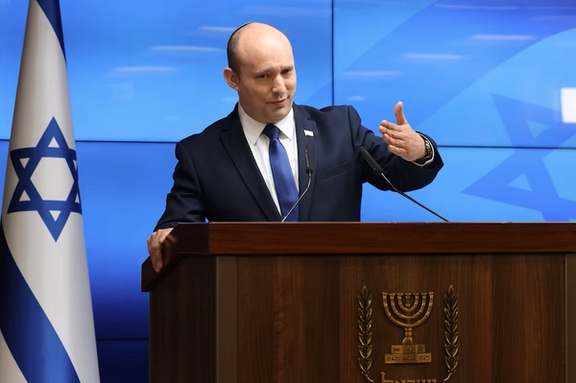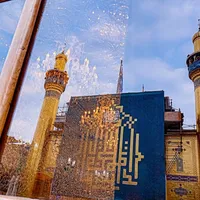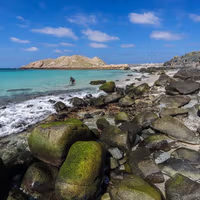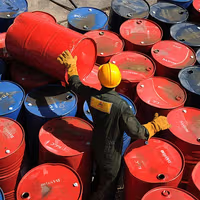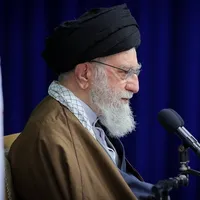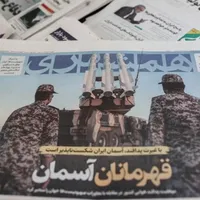Tehran media report on key appointments by Pezeshkian
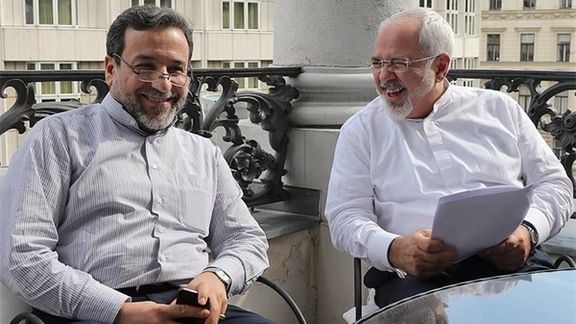
A major political news website in Iran reported on Saturday that the country's new president has already picked his foreign minister and head of the nuclear organization.

A major political news website in Iran reported on Saturday that the country's new president has already picked his foreign minister and head of the nuclear organization.
The report also said that long-time diplomat and top-level official Ali-Akbar Salehi will head the Atomic Energy Organization of Iran.
Pezeshkian will be officially inaugurated as the next president on Sunday, July 28, in a ceremony presided over by Supreme Leader Ali Khamenei. Two days later, he will take the oath of office in the parliament. According to parliamentary law, the new president is required to present his agenda and introduce his cabinet ministers within two weeks of his inauguration.
No names or lists of ministers is considered final until the president officially submits his proposed appointees to Supreme Leader Ali Khamenei.
During Pezeshkian's presidential campaign, initial speculations pointed towards former Foreign Minister Mohammad Javad Zarif as a key cabinet member. However, shortly after Pezeshkian's victory, Zarif announced that he would not be joining the administration.
Instead, he was appointed as the head of the Strategic Council for Transition, tasked with identifying and recommending ministerial candidates.
Asr-e Iran, a moderate-conservative website, on Thursday claimed that it has identified the three potential candidates for the foreign minister role selected by the committee, from whom Pezeshkian must choose.
All candidates belong to the reformist faction: former Deputy Foreign Ministers Abbas Araghchi and Seyyed Mohammad Sadr, who also served as Deputy Foreign Minister for Arab and African Affairs, and academic and former Ambassador to Russia, Mehdi Sanaei.
Earlier in July, the IRGC-affiliated Tasnim news agency also identified Araghchi as the "most probable" candidate for the foreign ministry.
Tasnim also asserted that Pezeshkian's message to Hezbollah leader Hassan Nasrallah, was authored by Araghchi.
Araghchi, served as deputy to Zarif during Hassan Rouhani's presidency, which concluded in mid-2021. He was Zarif's right-hand man during talks that led to the 2015 JCPOA nuclear deal.
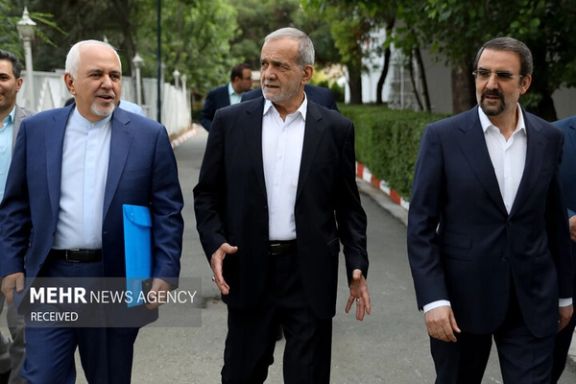
Another potential candidate named in the media is Mehdi Sanaei, who served as Iran's Ambassador to Russia, Senior Advisor to the Foreign Ministry, and a former Member of Parliament. The Iranian media highlight his fluency in English, Russian, and Arabic, recognizing him as both a practitioner and a professor in international relations.
During political roundtables and election debates, Sanaei served as one of Pezeshkian's political advisors, leading the media to believe that he was one of Pezeshkian's candidates for the Ministry of Foreign Affairs.
In 2019, Sanaei found himself at the center of a significant controversy following the death of his daughter in Moscow, described as an apparent suicide. The Iranian embassy announced Arefe Sanaei's passing on social media but denied suicide as the cause, attributing her death to a "brain stroke."
Contradictorily, a local TV station reported that the ambassador's daughter fell from a ninth-floor window onto a Renault car, resulting in her death. Radio Free Europe/Radio Liberty (RFE/RL), a US-funded news organization, corroborated this account, confirming local media reports that Arefe Sanaei fell onto a car in the street.
Supreme Leader Ali Khamenei has consistently reiterated his priorities, which include supporting proxy groups in the region and steadfastly advancing the nuclear program. In his latest speech, he praised the parliamentary-approved "Strategic Action Plan to Lift Sanctions and Protect the Iranian Nation’s Interests," which mandates the government to increase uranium enrichment and reduce UN inspections According to Zarif, this law has been a significant obstacle to achieving meaningful progress in negotiations.
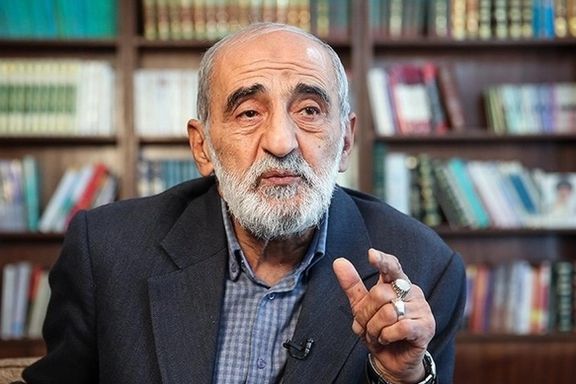
A staunch hardliner aligned with Supreme Leader Khamenei launched a scathing critique of President-elect Pezeshkian's cabinet formation team, accusing them of corruption, espionage and "advocating homosexuality."
In an article published on Saturday, the firebrand Hossein Shariatmadari, editor of the flagship hardliner newspaper Kayhan, funded by Ali Khamenei's office, criticized the newly elected Masoud Pezeshkian's Strategic Council for Transition.
Shariatmadari contended that the council, entrusted with identifying and proposing ministerial candidates, comprises individuals ill-suited for their roles. Using harsh language, he blasted them for incompetence and fraud but also for their supposed liberal leanings without offering any concrete evidence.
"Many members of the council and its subcommittees have a history marked by collaboration with enemy intelligence services, security convictions, corruption, and defense of homosexuality," the radical ideologue continued. "Their track records reveal disbelief in the system and the revolution, and they have openly aligned and collaborated with the US, UK, and Israel during riots and uprisings."
While he did not name anyone specifically, most of the hardliners' critiques these days are directed at former Foreign Minister Mohammad Javad Zarif, who leads the council.

Shariatmadari accused the council of "open alignment and collaboration with the US, UK, and Israel," engaging in secret meetings with known US adversaries, and complying with directives from then-US Secretary of State John Kerry regarding Yemen.
Most of his criticism implicated Zarif specifically, as Shariatmadari's critique of foreign policy alluded to the 2015 incident when former US Secretary of State John Kerry issued a warning to Iran over its alleged support for Houthi rebels in Yemen.
In 2021, Iran International TV released an audio recording in which Zarif discussed his purportedly close relationship with former US Secretary of State John Kerry. Also, in 2018, John Kerry admitted that he had met with Zarif to preserve the 2015 nuclear deal with Tehran.
Shariatmadari further criticized Pezeshkian, asserting that although his rhetoric aligns with Khamenei's directives, his actions, particularly the formation of this council, contradict them.
“Given the divergent perspectives of the majority of the steering council members and its subcommittees from the Islamic and revolutionary viewpoints of Mr. Pezeshkian, there is a legitimate concern that the candidates recommended by this council and its subcommittees for ministerial and other critical positions may be fundamentally misaligned with the objectives of the honorable President,” Shariatmadari wrote.
The initial list of 16 members in the council includes prominent 'reformist' figures such as former Government Spokesman Ali Rabiei, Pezeshkian's campaign manager Ali Abdolalizadeh, academics Hadi Khaniki and Mohsen Renani, former Minister of Economy Ali Tayyebnia, former Culture Minister Reza Salehi Amiri, and former lawmakers Ali Tajernia and Ali Shakouri-Rad.
The council is under scrutiny not only from hardliners but also from reformists, as jockeying takes place to obtain ministerial posts. Despite its claims of implementing "reverse discrimination" to include women and religious minorities, the council features few female members.
Every faction appears eager to secure a position in the cabinet and is apprehensive about others gaining dominance, particularly given the significance of the upcoming four years. This period is crucial due to concerns over Khamenei's advanced age and the potential for this administration to act as a transitional government during potentially turbulent times if a new leader assumes power.
On Thursday, Mohammad Ali Abtahi, a prominent reformist politician and senior aide to former President Mohammad Khatami, questioned the cabinet's inclusivity. He pointed out that while hardliners are expected to be included in this cabinet, they do not reciprocate by including reformists when they are in power.
"In Ebrahim Raisi’s government, even those with the slightest association with reformists were excluded from any positions," Abtahi said.
Meanwhile, reformist commentator Abbas Abdi attempted to mirror Pezeshkian's rhetoric of bridging the gaps between various political factions. This approach aligns closely with Khamenei's recent call for unity, emphasizing the need for "one voice to be heard from Iran."
Using a football analogy, a favored sport in Iran, Abdi remarked in Etemaad daily on Saturday: “The political game in Iran is influenced more by the conditions of the playing field than by its direct players, such as the cabinet and ministers. The playing field has been severely damaged. There are numerous disagreements and inefficiencies within the administrative and executive structures in politics.”
It appears that Abdi, consciously or unconsciously, is advocating for changes similar to those proposed by Pezeshkian—changes that are not feasible with the Supreme Leader at the helm. However, Abdi did not explicitly express his stance on Khamenei; instead, he deferred to Pezeshkian, who has so far received Khamenei's support.
In the final analysis, it is difficult to determine whether Shariatmadari's provocative statements are his own or if they reflect directives from the Supreme Leader's office.
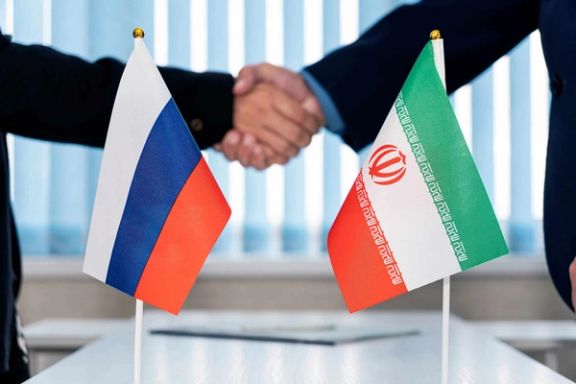
After two decades, Russia has not finalized its investment promise for a railway line in Iran, casting significant doubt over the viability of Moscow and Tehran’s recent claims of a historic cooperation agreement between the two nations.
Iran's Deputy Transportation Minister, Kheirollah Khademi, stated this week that if Tehran cannot secure Moscow’s loan, its participation in the railway project would be essentially meaningless.
Despite years of negotiations and the signing of several memoranda of understanding, with the latest one concluded 15 months ago, Moscow has yet to decide on investing in or providing a loan to Tehran for the completion of the project.
The railway would connect the two northern cities of Rasht and Astara, on the border with Azerbaijan – and make it a critical segment of the International North-South Transport Corridor (INSTC) to link India, Iran, Russia, and Europe.
With the project requiring a $1 billion investment, the Islamic Republic has sought Russian loans, aiming to earn transit revenue from moving Russian goods to Asian countries and vice versa.
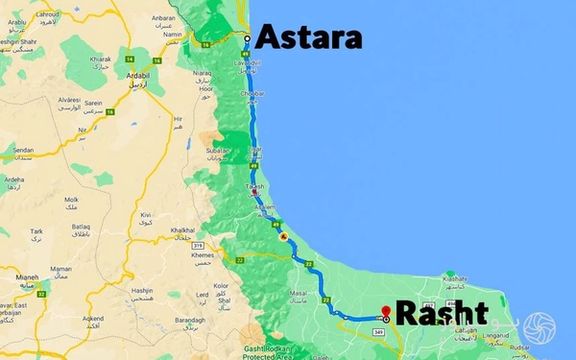
In May 2023, alongside the signing of a MoU between the two countries to develop this railway line, then-Iranian President Ebrahim Raisi’s website described it as a "giant project."
It announced that the railway line was scheduled to be completed in three years, stating it would have the capacity to transport 10 million tons of cargo in its first year of operation, as well as up to one million passengers annually.
Based on this, Raisi's website stated, the railway could generate $20 billion annually for Iran.
Yet, expecting $20 billion in annual revenue from a $1 billion investment in a 164-kilometer railway can be seen as unviable, given that Iran's total foreign cargo transit revenue from all modes of transport (roads, railways, air, and sea) was $1 billion in the previous year, according to Iranian customs statistics.
More importantly, Iran has 15,000 kilometers of railway lines, yet only a very small portion of foreign goods transit is conducted via these railways.
It is thus unclear how the government expects to generate $20 billion in annual revenue by adding just 164 kilometers (approximately one percent) to its existing railway lines.
Adding further uncertainty to the project's future is Khademi's admission that the final cost of the project has not yet been determined.
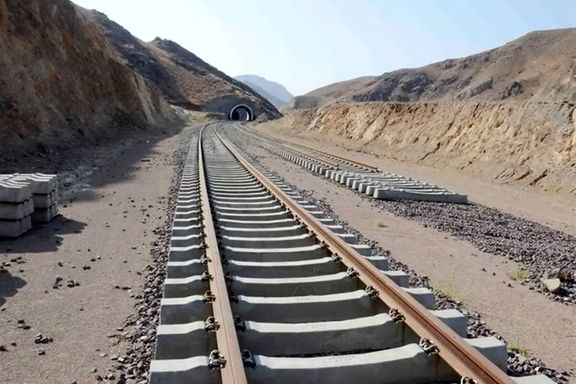
Iranian authorities' approach of exaggeration
In recent years, Iran has taken an exaggerated approach in its cooperation with Russia and China to counter perceptions of international isolation.
For instance, Iranian Oil Minister Javad Owji recently claimed that Russia has agreed to deliver 300 million cubic meters per day (mcm/d) of gas to Iran through the construction of a massive pipeline, which would transform the Islamic Republic into a "regional energy hub."
This claim of 300 mcm/d in Russian gas deliveries starkly contrasts with the current reality, where only Turkey and Iraq are customers of Iranian gas. Last year, their combined daily purchases from Iran totaled just 33 mcm.
Moreover, Pakistan has suspended its contract to import 22 million cubic meters per day (mcm/d) of Iranian gas since 2015 due to the risks of US sanctions. Even if Pakistan were to begin importing gas from Iran, the Islamic Republic would be able to export only 55 mcm/d in total. It remains unclear how the additional Russian gas would benefit Iran.
Meanwhile, both Turkey and Iraq, as Iranian gas customers, have signed agreements with Turkmenistan for gas purchases.
Turkey not only directly purchases gas from Russia but also transits Russian gas to Europe, essentially eliminating the need to buy Russian gas via Iran.
Iran itself faces a gas deficit, and if it were to consume imported Russian gas, the cost would be equivalent to the annual budget of the government, making it practically impossible.
Iranian Oil Minister Javad Owji last week went even further, claiming that Russia has agreed to bear the cost of constructing a gas export pipeline to Iran via the Caspian Sea.
The estimated cost of constructing a pipeline with a daily transmission capacity of 300 million cubic meters (mcm) of gas is approximately $20 billion for the maritime segment alone. Additionally, hundreds of kilometers of pipeline would need to be laid across Russia's land segment to reach the northern Caspian Sea. Given that Russia has not been willing to invest even $1 billion in a short Iranian railway line to complete its North-South corridor for the transit of goods to Asian markets over the past two decades, it is highly doubtful that Russia would be willing to spend tens of billions of dollars to build a gas pipeline to Iran.
Owji’s expectation, therefore, appears to be highly unrealistic.
Myth of capital attraction
Iranian officials often said that over the past three years, the country has attracted $13 billion in foreign capital.
This figure, however, represents foreign investment permits issued by the government in the past three years, rather than the actual investments made by foreign companies or governments in Iran.
According to statistics from the UN Conference on Trade and Development (UNCTAD), Iran has attracted a total of $4.347 billion in direct foreign investment over the past three years. In comparison, this figure is eight times less than Turkey's foreign investment and fifteen and seventeen times less than that of Saudi Arabia and the United Arab Emirates, respectively.
Meanwhile, the statistics by the Central Bank of Iran show that the net capital account in Iran was negative $44.5 billion from March 2020 to December 2023.
In other words, capital flight from Iran over the past three years has been equivalent to ten times the amount of foreign direct investment attracted during the same period.
Capital flight from Iran exceeded $20 billion in the first nine months of the last fiscal year (March 20, 2023, to December 22, 2023), marking a historic record. The Central Bank has not yet published the net capital account status for the entire fiscal year.
While Russia continues to procrastinate in granting a $1 billion loan for the Rasht-Astara railway line, the Iranian state has expediently provided hundreds of suicide drones to Moscow over the last year for its military invasion of Ukraine.
As a result, Iran not only faced severe sanctions from Europe and the United States but also effectively lost the opportunity to continue nuclear negotiations for sanctions relief. This situation is exacerbated by Russia's imposition of preconditioned sanctions exemptions on trade with Iran and its reported takeover of Iran's oil, steel, and petrochemical markets in Asia, further diminishing Iran’s ability to negotiate for sanctions relief.

Iranian rights activists see Javaid Rehman's 2024 report on the human rights situation in Iran as a monumental victory for justice and a beacon of hope for the Iranian people and advocates worldwide.
This report meticulously documents atrocities committed by the Iran’s Islamic government over the past four decades, underscoring that these heinous acts are not forgotten and that there remains a persistent and determined pursuit of justice and accountability for the victims and their families.
Rehman's report serves as a historical record and a critical call to action for the international community. It urges global actors to support mechanisms that ensure accountability and prevent further human rights violations.
By highlighting the systematic nature of these abuses and the enduring struggle for justice, the report emphasizes the need for sustained international pressure and support for Iranian human rights defenders. Importantly, the report underscores the necessity of involving survivors and witnesses in justice. Rehman points out the Iranian government's concerted efforts to destroy evidence, such as mass graves, and suppress the truth. Despite these challenges, the resilience of victims' families and human rights activists has ensured that these atrocities remain in the public consciousness.
The report highlights the systematic human rights violations and atrocities committed by the Islamic Republic of Iran (IRI) since the 1980s, including the infamous 1988 massacre of political prisoners. Rehman's detailed analysis points out that thousands of political prisoners were executed without fair trials, a dark chapter in Iran's history that has yet to see justice. The enduring suffering of the victims' families, who have been denied the truth about their loved ones' fates, is a stark reminder of Tehran’s ongoing repression.
Had the international community addressed these atrocities when they occurred, subsequent human rights violations by the IRI might have been mitigated, the report emphasizes. The regime's impunity has only emboldened it to continue its repressive tactics. By documenting these historical abuses and connecting them to contemporary issues, Rehman provides a comprehensive overview of the IRI's long-standing patterns of human rights violations.
The success of Rehman's report results from years of dedicated activism and meticulous fact-gathering by human rights organizations and activists. These organizations have played crucial roles in documenting abuses, collecting testimonies, and advocating for justice. Their relentless efforts have laid the groundwork for Rehman to present a compelling case for crimes against humanity and genocide committed by the IRI.
Among these pivotal organizations, the Rastyad Collective stands out for its groundbreaking research and meticulous documentation of human rights abuses in Iran. Their comprehensive study on the 1981 massacre in post-revolutionary Iran has unveiled the systematic nature of state violence and its enduring impact on the nation's legal foundations. The Rastyad Collective's anonymous researchers have bravely gathered evidence on the ground, often at great personal risk, documenting over 3,500 executions across 85 cities. Their work sheds light on the tragic fate of many, including the execution of 103 children. It confirms that the 1981 massacre occurred within a legal vacuum, with the state resorting to extra-legal means of violence to assert control.
By meticulously examining the events surrounding the massacre, the Rastyad Collective has highlighted how these egregious acts of state violence were used to instill fear and consolidate power. Their research has been crucial in understanding the development of Iran's theocratic regime and its legal framework, revealing how the 1981 atrocities have shaped the ongoing human rights landscape in Iran.
Javaid Rehman's July 2024 report is a testament to the power of persistent activism and the critical role of comprehensive, evidence-based reporting in the fight for human rights. It represents a significant victory for those who have long sought justice for the victims of the IRI's atrocities. The report not only brings to light the historical abuses but also highlights the ongoing struggle for accountability in Iran.
The international community must heed Rehman's call to action. By supporting efforts to hold the Iran’s Islamic government accountable, the global community can help ensure that the victims and their families receive the justice they deserve. The report serves as a powerful reminder that the fight for human rights is ongoing, and that the pursuit of justice must continue unabated. Activists from other countries should emulate the Iranian model, continuing to document the crimes of their brutal regimes and never losing sight of hope.
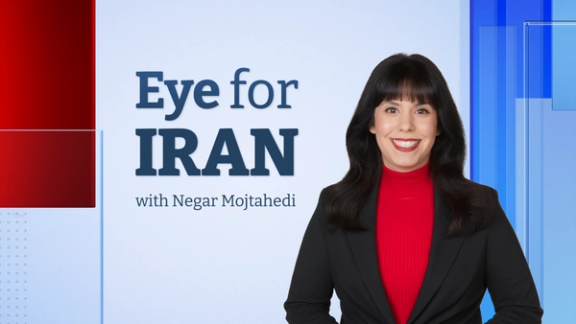
Israel’s Prime Minister Benjamin Netanyahu called for a military alliance in the Middle East to counter Iran’s threat, but his proposal has no chance without the backing of the American administration, said one of Netanyahu's former advisors.
Speaking at the US Congress on Wednesday, the Israeli Prime Minister called for the creation of a regional anti-Iran alliance in the Middle East, which he termed the ‘Abraham Alliance.’ He envisions this alliance as an extension of the ‘Abraham Accords.’
The groundbreaking accords normalized diplomatic relations with Israel and various Arab states, including the UAE, Bahrain, Sudan and Morocco during the Trump administration.
Netanyahu’s proposed pact to “counter the growing Iranian threat” comes on the heels of Secretary of State Antony Blinken warning that Iran’s ‘one or two weeks’ away from producing enough fissile material to manufacture a nuclear weapon.
On this week’s episode of ‘Eye for Iran’, Alex Selsky with the Middle East Forum, a conservative think- tank, said the idea of the 'Abraham Alliance’ would come as welcome news to Israel’s Muslim neighbors despite the war against Hamas and the destruction in Gaza.
“I think it's necessary. I think it depends on the United States…If our Arab friends and neighbors see that America gives the necessary backup, they will join,” said Selsky, who previously advised the Israeli Prime Minister.
But when it comes to the war of public relations, how is Israel fairing? And can Israel push its anti-Iran government rhetoric with the backdrop of the war against Hamas.
This week’s episode also speaks to an Iranian American human rights advocate on President Joe Biden’s legacy on Iran after he made the historic decision to drop out of the US presidential election.
Sarah Raviani, a visiting fellow at the National Union for Democracy in Iran (NUFDI), said Biden will be remembered for appeasing the Iranian government.
“We saw the disastrous $6 billion ransom deal, which received a lot of backlash from our community. And I urge everyone to remember that these are all decisions that were made not only by President Biden, but with his vice president Kamala Harris,” said Raviani referring to release of five detained Americans in Tehran and an unknown number of Iranians imprisoned in the US after billions of dollars in frozen Iranian assets were transferred from banks in South Korea to Qatar.
Raviani said the Biden-Harris administration would “say all the right things” but wouldn’t implement practical action.
She revealed her own personal insight as an activist pushing to influence US policy towards Iran like the work she did with NUFDI and other advocates to push through the MAHSA Act, a bill that strengthens US sanction against Iran’s rulers.
The MAHSA Act is bipartisan piece of human rights and anti-terrorism legislation that was named after Mahsa Amini, a 22-year-old Iranian-Kurdish woman who died while under police custody.
But just how do Iranian-Americans feel about Vice President Kamala Harris? Find out more with this week's episode of 'Eye for Iran.'
You can watch the entire episode on Iran International's YouTubePage or listen to it on Spotify, Apple or Amazon.
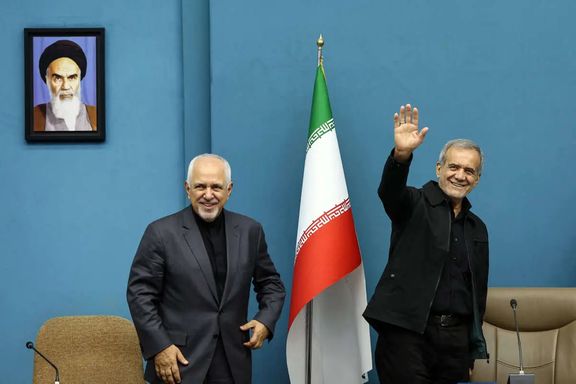
The slow pace of forming a new cabinet, nearly two months after rapid developments in Iran following the former president's death, has sparked widespread speculation among the public and politicians.
Newspapers and their affiliated politicians, as well as social media users are engaging in all sorts of speculation, many of which are quickly refuted by members of President-elect Masoud Pezeshkian's inner circle.
Expectations are often expressed as wishful thinking. As Pezeshkian himself has noted, some politicians try to promote themselves for desired posts by spreading rumors about their imminent appointment.
Some, like Ettela'at Newspaper Managing Editor Abbas Salehi Amiri have opted out of the vetting committees set up by former Foreign Minister Javad Zarif. Salehi, whose name came up in the media as one of those the committees have chosen for the post of Culture Minister, told reporters that he will not accept the position.
The newspaper, one of the biggest media organizations operating under the aegis of Supreme Leader Ali Khamenei's office, publishes a daily newspaper and a dozen popular magazines. It owns one of the country's biggest printing houses which has an enviable annual turnover. The newspaper also has a publishing house as well as several bookstores in Iran. It is far bigger than many of the government ministries.
On the other hand, although he has held government posts before, Salehi Amiri is a moderate politician weary of the utterly aggressive political landscape in Iran.
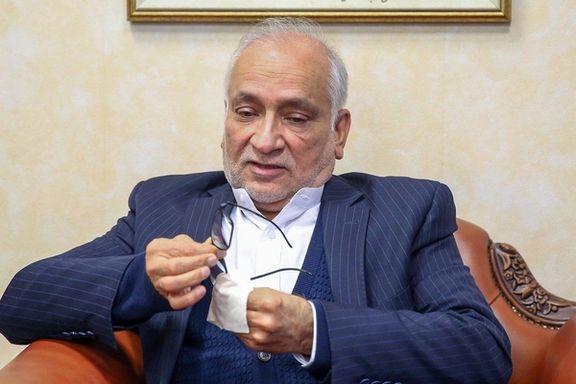
Hossein Marashi, the Secretary General of centrist Executives of Construction Party that supported Pezeshkian during the election was rumored to be the next Vice President. However, he denied the reports. He said he has told Pezeshkian that Khamenei is a lonely person nowadays and he needs the country's biggest and most senior experts to serve in the government.
Another politician rumored to be the next vice president is former Majles Speaker Ali Larijani. While many politicians and members of the public have welcomed this rumor, some have expressed concerns that Larijani, being a far more prominent political figure than Pezeshkian, might overshadow the President and affect his performance.
Some Iranian politicians still believe that despite his disqualification by the Guardian Council for the latest and previous presidential elections, Larijani is still one of the closest Iranian politicians to Khamenei who trusts his loyalty and devotion.
Other media outlets in Iran have said with a degree of certainty that Larijani is going to be the next Secretary of Iran's Supreme Council of National Security. However, it would sound a bit strange if Larijani, a very proud politician, accepts to go back to a post he used to hold many years ago under President Mahmoud Ahmadinejad.
Meanwhile, former Culture Minister Ali Jannati who believes all the cabinet ministers and vice presidents will come from the moderate part of the Iranian political landscape, has reiterated that former Minister of Economy Ali Tayyebnia and former foreign minister Zarif will most certainly be in Pezeshkian's cabinet. Jannati and others have said that Larijani is ideal for the post of Senior Vice President and Tayyebnia is fit for the post of Vice President for Economic Affairs.
Several politicians including former Deputy Foreign Ministers Abbas Araqchi and Seyyed Mohammad Sadr as well as former Foreign Minister Ali Akbar Salehi are said to have been nominated for the post of Foreign Minister.
Zarif and former ITC Minister Mohammad Javad Azari Jahromi who have said they will not be in the new cabinet, are still mentioned as possible members of the cabinet despite harsh attacks by their political rivals in the ultraconservative Paydari Party who branded them as “Pat and Mat”, the sloppy characters of a Czech cartoon aired on the Iranian state TV.
Azari Jahromi, one of Iran's youngest former cabinet ministers and a former director general at the Ministry of Intelligence, has said that he doesn't mind others calling him Pat or Mat, adding that if Pezeshkian seeks his help, he will be there for him.
Rumors will soon end as Pezeshkian names his ministers and vice presidents, but conflicts and controversies over the appointments he makes are likely to continue for a long time.
